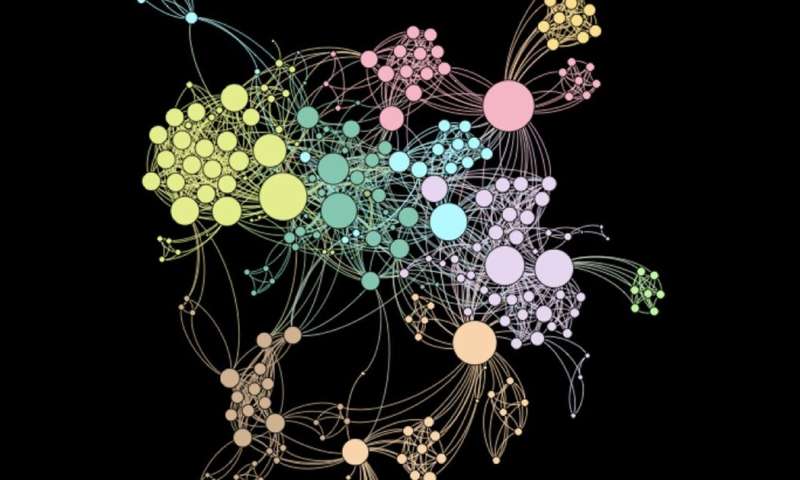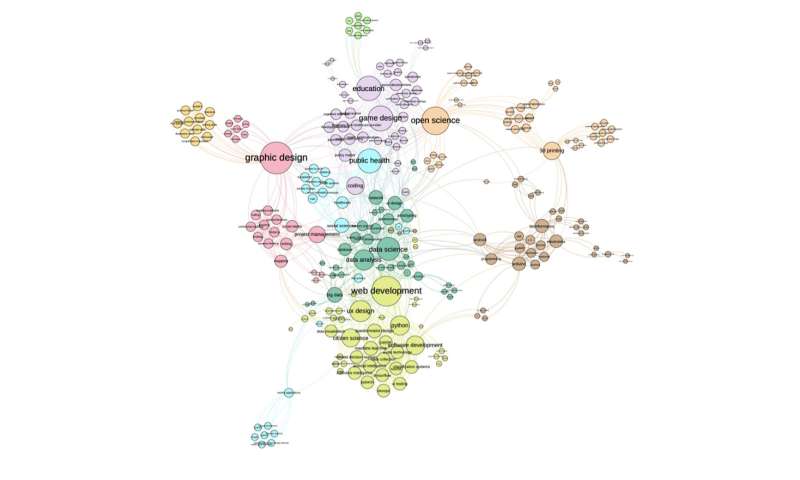COVID-19: the rise of a global collective intelligence?

All around the world, scientists and practitioners are relentlessly harnessing data on the pandemic to model its progression, predict the impact of possible interventions and develop solutions to medical equipment shortages, generating open-source data and codes to be reused by others.
Research and innovation is now in a collaborative frenzy just as contagious as the coronavirus. Is this the rise of the famous "collective intelligence" supposed to solve our major global problems?
The rise of a global collective intelligence
The beginning of the epidemic saw "traditional" research considerably accelerate and open its means of production, with journals such as Science, Nature and The Lancet immediately granting public access to publications on the coronavirus and COVID-19.
The academic world is in ebullition. Every day, John Hopkins University updates an open and collaborative stream of data on the epidemic, which have already been reused more than 11,000 times. Research results are published immediately on pre-print servers or laboratory websites. Algorithms and interactive visualizations are flourishing on GitHub; outreach videos on YouTube. The figures are staggering, with nearly 9,000 academic articles published on the subject to date.
More recently, popular initiatives bringing together a variety of actors have emerged outside institutional frameworks, using online platforms. For example, a community of biologists, engineers and developers has emerged on the Just One Giant Lab (JOGL) collaborative platform to develop low-cost, open-source solutions against the virus. This platform, which we developed with Leo Blondel (Harvard University) and Thomas Landrain (La Paillasse, PILI) over the past three years, is designed as a virtual, open and distributed research institute aimed at developing solutions to the Sustainable Development Goals (SDGs) defined by the United Nations. Communities use it to self-organize and provide innovative solutions to urgent problems requiring fundamentally interdisciplinary skills and knowledge. The platform facilitates coordination by linking needs and resources within the community, animating research programs, and organising challenges.
When the first project related to COVID-19—a low-cost, open source diagnostic test—was born in early March, there was a rush on the platform. The number of contributions per minute kept increasing: hundreds of interactions, project creation, communications… So much so that the server hosting the platform couldn't hold anymore! In only one month, there were more than 60,000 visitors coming from 183 countries, including 3,000 active contributors generating more than 90 projects, ranging from mask designs to low-cost ventilator prototypes, or cough-classification AI apps.
This massive community quickly self-organized into working groups, mixing different skills and universes; unexpected combinations of data scientists from large companies, researchers in anthropology, engineers or biologists come together in this virtual universe.
The most active person and emerging coordinator of the community even turns out to be… a 17-year-old high school student from Seattle! This initiative is now a full-fledged research program, OpenCOVID19, with 100,000 euros of funding from the Axa Research Fund currently redistributed as micro-grants to emerging projects through a community peer-review system, a partnership with the Paris hospital system (AP-HP) to facilitate the evaluation and validation of designs intended for hospital use, and several major themes: diagnosis, prevention, treatment, validation, and data analysis and modelling.
The open-source world has in the past decades spearheaded community self-organization and is at the origin of massive collaborative projects such as Linux or Wikipedia. Similar efforts are now emerging to solve global and multi-disciplinary issues, leveraging skill diversity at the service of project complexity.

What is "collective intelligence"?
If we can measure individual intelligence using performance indicators for various tasks and deriving individual "IQ", why not measure the intelligence of a group through their performance on collective tasks?
Researchers have exhibited the existence of a collective intelligence factor. It turns out that an intelligent group is not a group of intelligent individuals, but rather a group of individuals who interact efficiently—for example though their ability to speak equitably in discussions. The authors conclude: "it would seem to be much easier to raise the intelligence of a group than an individual. Could a group's collective intelligence be increased by, for example, better electronic collaboration tools?".
This is the spirit of collaborative platforms such as JOGL: we can monitor in real time community evolution and project progress, allowing to facilitate the coordination of the various programs, including OpenCOVID19.
The generated data also provide a quantitative ground to explore "good practices" facilitating collective intelligence. By analysing it with the tools of network science, we study how collaborative dynamics underpin the advancement of knowledge.
Ephemeral awakening or long-term revolution?
While it is too early to draw conclusions in the case of the OpenCOVID19 program, designing the future of such massive collaborations starts now. In particular, members of communities that scale up quickly often get lost, and smart onboarding strategies are key to sustaining such efforts. The grail of these communities resides in building an architecture of attention through recommender systems, the same algorithms that made the success of social networks such as Twitter, Instagram or Facebook. This approach, based on fundamental results from team science and network science, leverages the digital traces of the community to suggest the best person to contact, the most relevant project to help or pressing task to complete. At the heart of the JOGL architecture, such algorithms help promote serendipity and facilitate coordination.
Developing recommender systems for massive collaborations requires vastly diverse contributions, from computer science to social sciences, mathematics or ethics. Ironically, collective intelligence will be the key to its own design.
Provided by The Conversation
No comments:
Post a Comment